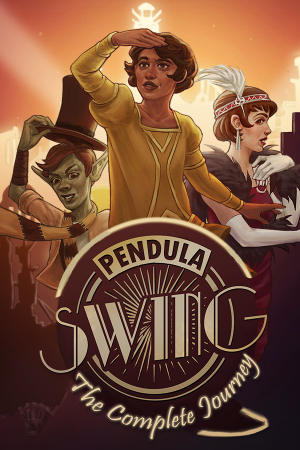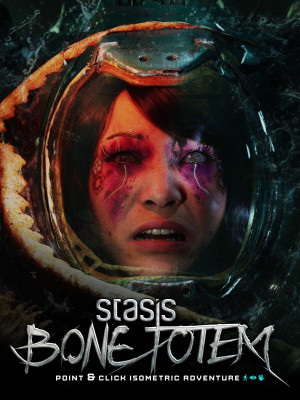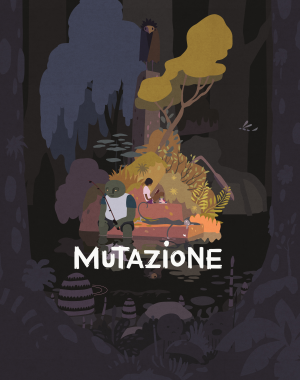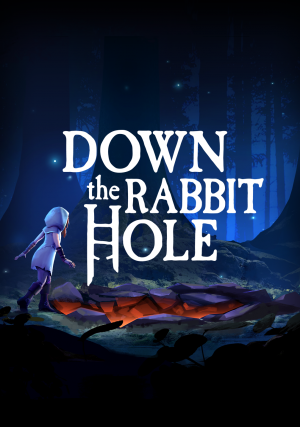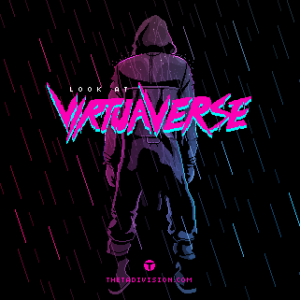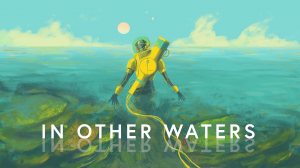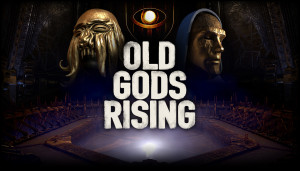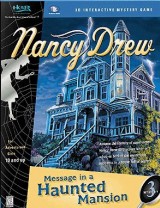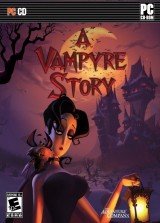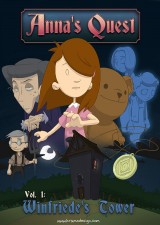Review for Pendula Swing – The Complete Journey
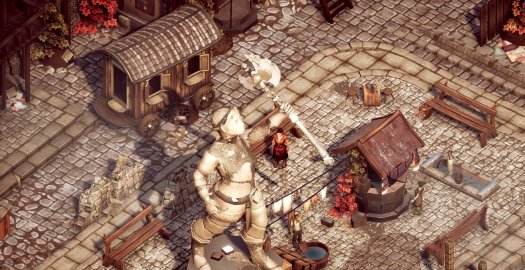
Epic fantasy sagas are all very well, full of swashbuckling heroes, evil monsters, dragons and gold, but have you ever wondered what happens when the story ends, the heroes go home, and the world moves on? Indeed, given the well-known tendency of history to be written by the victors, is it possible that the monsters were maybe not so much evil as misunderstood? Valiant Game Studio have, and the result is Pendula Swing, a seven-part story recently bundled and rereleased as The Complete Journey. More social commentary than adventure, we previously covered the first three episodes with the season still in progress, but these troubled times mark an especially good moment to revisit the land of Pendula and find out what's changed. Although the answer, as it turns out, is not much: this is a game that started as it intended to finish, but that's no bad thing. It remains a distinctively level-headed and positive fantasy take on decidedly real-world problems in a rather uniquely beautiful isometric world loosely based on the 1920s.
To briefly recap: dwarven hero Brialynne, having slain the foul orc Nakirik with her mighty axe, retired with her wife Taheena to live out their days on a quiet island. After 350 years of peacefully tending crops and feeding chickens, however, the outside world comes crashing back into her life when goblins sneak in one night and steal her axe. Making her way to the nearby capital city of Duberdon, she finds an almost unrecognisable world. In her absence, the jazz age has arrived, humans have risen to dominance, and all races have reluctantly been forced to find a way to live together in peace.
Describing this adventure as the quest of a hero in search of her stolen axe would be to completely miss the point. The axe is merely a McGuffin, a narrative thread to draw Brialynne through the world, encouraging her to meet new people and uncover the many injustices, both small and great, of a world whose surface differences hide a core painfully similar to our own. For example, that "foul orc" was a hero to his people, who are now just trying to make a living, raise their families, and not cause any trouble. And they can do all that in Duberdon – in theory. They can't go to the same schools, of course, and they're probably up to something. But if they can navigate a maze of paperwork designed to frustrate them, maybe it's okay to let them settle there. After all, somebody needs to do the grunt work, right? Even the orcs are better off than the goblins, though, who were thrown off their land and have wound up in a shanty town, begging and trying to scrape together enough books to educate their children.
Meanwhile, the humans have invented aeroplanes and cinema, discouraged magic and set themselves up as first among equals. Setting aside their magic, the aristocratic elves have nonetheless found themselves a niche in high society, becoming film stars, university professors and department store owners. The dwarves fit in somewhere in the middle: a solid, dependable working class with only their tendency to brew too-potent beer counting against them during a time of prohibition.
The world of Pendula is rendered in lovely isometric 3D, ranging from the pastoral idyll of Brialynne's island to bright, bustling Duberdon. The island, with its rustic cottage and pecking chickens, contrasts sharply with the bustling, can-do metropolis, with its grand buildings and sunny piazzas. The soundtrack is likewise varied, ranging from gentle folk and lilting violins to lively vintage jazz. There's no voice acting, though the characters can mumble audibly as you read their dialogue if you wish. One nice touch here is that each race gets its own dialogue font, from flowing elvish cursive to something that looks like it was carved out of rock for the dwarves.
The focus is on people and stories, not to mention realism, and this is reflected in the gameplay systems. Although there's an inventory (your backpack, which you have to first pick up) and you can fill it with objects, there's no way to combine or use them. Instead, you talk to characters and, if you have something they need or want, there'll be a dialogue option to give it to them. Likewise, the puzzles aren't your traditional brainteasers, instead generally involving finding and persuading the right people. Many of them even have multiple solutions; for example, you can either enter a speakeasy by discovering the password or using the tradesmen's entrance.
Money is another interesting topic. Unlike many adventures where scraping together a single gold piece is a puzzle in itself, Brialynne's illustrious history means she seems to have more than enough gold at home to pay for everything she needs, and even donate to beggars. That said, if she does ever find herself strapped for cash, there's a convenient pawn shop in town, which also sells a range of goods the denizens of Duberdon need. Many of these also pop up as gifts if you help the right people, but the shop provides a useful backstop in case you missed/avoided those interactions. Alongside your main adventuring duties, there are a variety of RPG-like optional activities, such as finding pets and friends to follow you around. These are fun, but they arguably make the experience feel less focused, especially as they're largely disconnected from the rest of the game and rarely draw comment from any of the other characters.
There is a real breadth of stories here, covering everything from racial discrimination to polyamory and LGBT issues. Pendula is packed with vignettes, brief sketches of everyday struggles, with later episodes mainly offering more areas to explore and characters to meet. You’ll visit a goblin slum, the ivory towers of Duberdon University, and your own salt-of-the-earth dwarven community, among other places. In between helping the goblins to realise their dreams, defusing a student protest, and attending a family wake, you even find the time to go shopping and update your look. That's particularly helpful given that you also have the option to romance certain key characters.
This emphasis on the small and personal means there's no real overarching story, no building to a dramatic climax, just people living their lives. Even at the end of the main storyline, you're still free to keep exploring and helping people. There is a final cutscene that wraps up all the loose ends and lets you know how everyone's doing, but even that you can only trigger by going home, going to bed and falling asleep.
This approach won't satisfy everyone, but for me it was a refreshing change. In stark contrast to the real world, everything's kept quiet and low-key, with graffiti and protest placards instead of riots and looting. Yes, there's ignorance, greed and discrimination, but as you progress you get a real feeling that you're making a difference, helping some people in small ways and encouraging others to listen. Maybe even starting to make amends for your earlier axe work. Watching Brialynne come face to face with orcs who have cursed her name for centuries and yet do their best to forgive her and move on is all the more profoundly affecting for being underplayed.
Not everything you do requires an unwavering sense of altruism: for the most part you can choose to help the people you meet, or not. That said, while moral issues occasionally stray into grey areas (do you smuggle in some medicinal herbs, or rat a family out for taking illegal drugs?), there’s no real “dark path” for Brialynne to walk, just opportunities to close or open certain doors. This may have been a practical development decision to conserve resources, but I don’t think it would have fitted with the overall atmosphere of goodwill and hope.
Not everything is rosy in this particular fantasy garden, however. For one thing, the need to juggle your inventory and drop items off in rubbish bins around town remains frustrating throughout, especially toward the end of the game when I found the bins filling up as well and had to find other places to offload my spare junk. It may be more realistic to limit how much you can carry, but there's a reason virtually no other games do it these days.
A trickier issue also reared its head as I progressed, an unfortunate side effect of having so many characters and stories going on: I eventually started to lose track of where the people and places I needed were. Sure, I had to go see a particular goblin, but she could be anywhere in goblin town. And where did I last see those orcs so I can give them a key to their new house? I regularly found myself revisiting areas and people from earlier episodes, and I'd really have appreciated some kind of map to help keep track of it all.
Thankfully, the early bugginess that plagued the initial episode releases has essentially been addressed, although the developers are still mopping up the very last of the issues. It’s worth noting, though, that development is now focused on the Complete Journey, and anyone who bought all seven installments individually is being encouraged to contact the developers for a free key to the bundled version as the originals have already fallen behind in terms of both features and bug fixes.
A few small missteps and naive design choices don’t change the fact that Pendula Swing very much has its heart in the right place and is calmly, quietly trying to make a difference. Its approach is quite unusual, both in finding a way to use fantasy to address current issues in an unthreatening way, and in imagining how its characters would adapt to a more modern world, shorn of the usual fantasy trappings. The result has just enough jazzy bounce and flapper flair to avoid feeling like a stodgy moral lesson (at least most of the time) and leaves you feeling a bit more positive about both life and the future. It's very definitely not for everyone, but if you've ever got more caught up in sidequests than a game’s main goal, wondered how those NPCs actually lived behind the scenes, or just wanted to see an elf dancing the Charleston, Pendula awaits.


